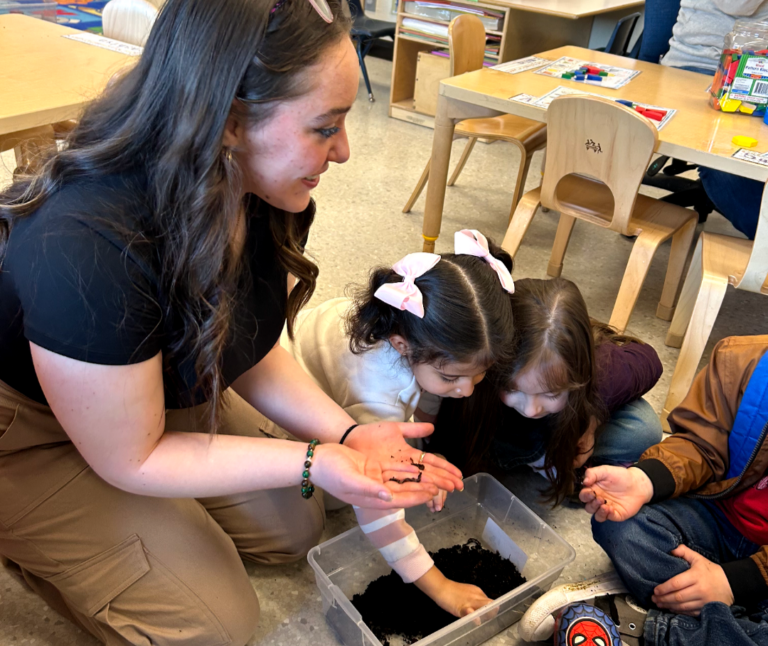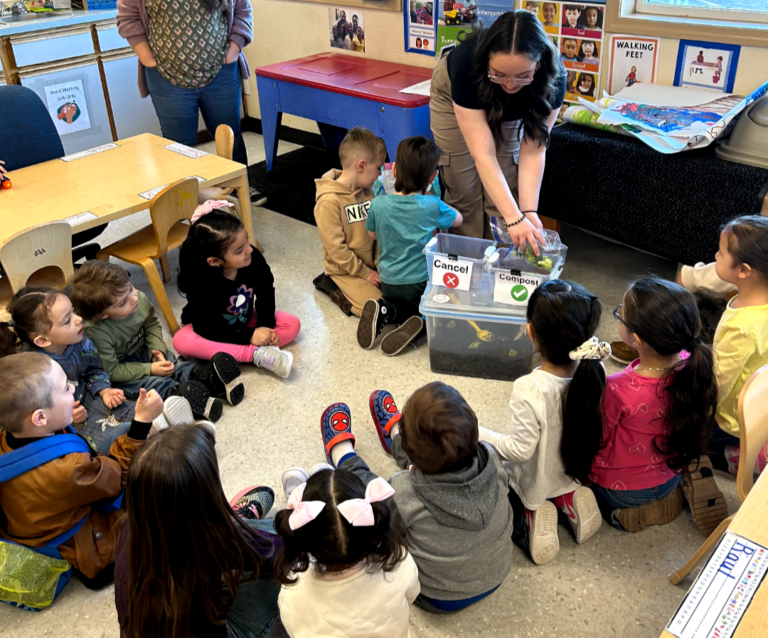Have you ever wondered what happens to your food scraps after they hit the trash can? Most often, they end up in landfills, contributing to methane emissions and environmental pollution. But there’s a better, greener solution—composting. It’s one of the easiest and most impactful actions you can take for the planet right from your home.
The Benefits
Composting has so many benefits! It helps reduce landfill waste, cuts down on harmful greenhouse gases like methane, and enriches the soil with vital nutrients that support plant growth and water retention. Healthy soil means healthier plants, improved crop yields, and stronger ecosystems. Compost also enhances soil structure, helps retain moisture, reduces erosion, and suppresses plant diseases and pests—making it a natural boost for your garden or community green space.
It’s also a cost-effective way to save on fertilizers while encouraging a more mindful, sustainable lifestyle. Households and communities that compost can significantly reduce their trash output, which also means fewer trips to the landfill and reduced municipal waste costs.
Composting isn’t just for farmers or gardeners—it’s for everyone. It’s an easy, empowering way to take direct climate action and live more sustainably. So let’s get started!
Getting Started
Step 1: Pick a compost spot
Find a good spot outside for a compost bin or pile. You can use a container, a wooden box, or even a simple pile of dirt in your yard.
Step 2: Add the right stuff
Compost needs a good mix of dry stuff and wet stuff. Start by putting soil and water into your bin or pile and giving it a good mix. You can also add cardboard or dry leaves!
Step 3: Worms
You can buy them online or find them in your garden! (I got mine from Uncle Jim’s Worm Farm on Amazon). Then just put them in your bin or pile, and let them settle in.
Step 4: Feed your worms
Worms can eat a wide variety of organic materials. They often enjoy uncooked fruits and vegetables. You can also give them things like leaves and paper to munch on. Try to avoid salty, processed, cooked foods, and acidic fruits like oranges and lemons. (Scroll to the bottom for a more comprehensive list.)
Step 5: Keep it cozy
Turn the pile every few days to give it air, and check on your worms often. Make sure the soil stays moist for your worms. Just like in life, worms, too, need moderation. Too much moisture can drown them, but not enough will dry them out. Try to find a happy medium for the best results.
Step 6: Use Your Compost
After a few months, your compost will be dark, crumbly, and smell like fresh earth! Composting creates nutrient-dense soil packed with things that your plants will love. You can use it in your yard, flower pots, or garden, and it is great for supporting healthy plant growth.
What Worms Can and Can’t Eat
If you’re composting with worms, it’s important to know what to feed them. Here’s a quick guide to help keep your worm bin healthy:
✅ What Worms Can Eat:
- Fruits: Apple cores, banana peels, melon rinds, grapes, strawberries, pears, peaches
- Vegetables: Lettuce, spinach, carrots, cucumber peels, zucchini, broccoli, sweet potato peels
- Grains and Breads (in moderation): Bread crusts, cooked pasta, rice, oatmeal, torn-up cereal boxes (uncoated)
- Coffee Grounds and Filters
- Tea Leaves and Compostable Tea Bags
- Crushed Eggshells (helps balance pH and adds calcium)
- Shredded Newspaper and Cardboard
- Corn Cobs and Husks (chopped into smaller pieces)
- Pumpkin and Squash Scraps
❌ What Worms Should Not Eat:
- Meat, Fish, or Bones
- Dairy Products (cheese, milk, yogurt, butter)
- Oily or Greasy Foods
- Citrus Peels and Juices (too acidic in large amounts)
- Onions and Garlic (too strong for worms)
- Spicy Foods and Chili Peppers
- Processed or Junk Food (contains salt and chemicals)
- Pet Waste (dog or cat feces, litter)
- Plastic, Foil, or Synthetic Materials
Feeding your worms the right scraps helps keep them happy and productive—turning your waste into powerful compost with ease!
Composting provides essential nutrients to plants, helps decrease the amount of waste we produce, and cleans our air while simultaneously keeping carbon emissions from going into our atmosphere. There are so many amazing benefits to composting, and it’s a pretty simple process. To care for your compost bin, all you really need is 3 minutes or less per day. This fun activity is one of the simplest and convenient ways you can make a positive impact on our environment. By making small daily efforts and commitments, we can make big life-changing differences. Stay tuned for more information on composting and for more Easy Earth Solutions!








